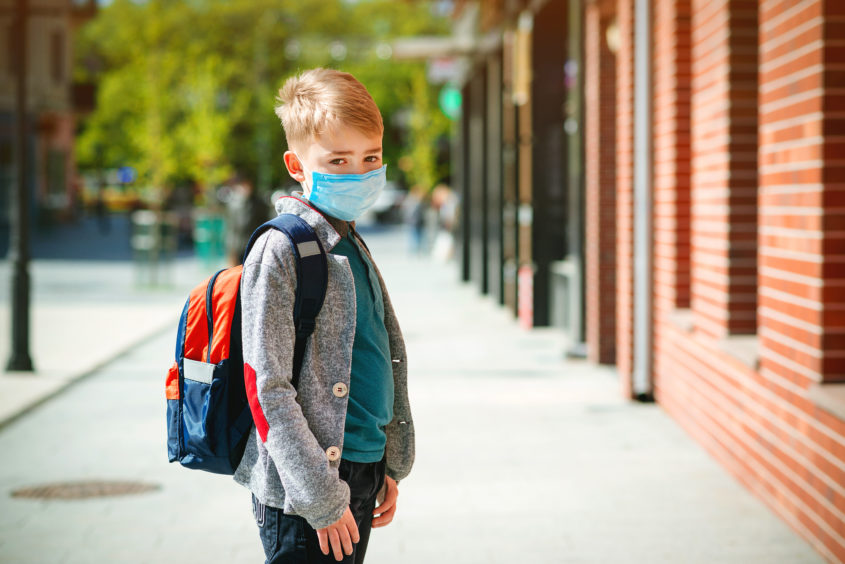Councils have issued local guidance to parents and pupils as face coverings become mandatory in secondary schools.
The Scottish Government introduced the new rules yesterday following updated scientific guidance from WHO.
The advice states that secondary school children should wear a face covering “under the same conditions” as adults when they cannot maintain at least a one metre distance.
Pupils and staff will have to wear a face covering while moving around the school or in a crowded area such as corridors, communal areas, including toilets, and school buses.
The guidance comes into effect from Monday and applies to pupils aged 12 and over in all secondary schools, special schools and grant-aided schools.
Following the guidance, councils in Tayside and Fife have announced rules for pupils who are exempt or do not want to wear a face mask.
Councils in Perth and Kinross, Dundee and Angus have said they expect young people, many of whom will be used to wearing face masks in shops or on transport, will be encouraged to follow the rules.
Pupils will be expected to come to school with their own face coverings, however schools will supply children with masks if required.
Can children be punished for not wearing a mask?
Pupils should not be excluded from school if they do not wear a face covering, the Scottish Government has said.
Schools should also take steps to ensure they have a “contingency” supply of face coverings.
Many pupils may also be exempt from wearing face masks due to a medical condition and parents are awaiting further advice from local schools.
Perth and Kinross Council has said pupils with exemptions will be supported.

A spokesperson said: “We recognise that some pupils may have good and valid reasons for not wearing a face covering.
“Therefore we will take into account the exemptions listed in the national guidance, their position will be respected and pupils will be able to continue attending school, again in line with national guidance.
“Council schools will continue to work with children, young people and their parents/carers to promote the importance of physical distancing, good hand hygiene and respecting others’ circumstances.”
Angus and Dundee City Council have also said they will be following the government’s guidance on exemptions.
Angus Council have asked parents who feel their child may be exempt or have issues wearing face masks to contact their school directly.
Carrie Lindsay, executive director of education and children’s services at Fife Council, said pupils with physical, behavioural or emotional reasons for not wearing face masks will not have to do so.
Parents should contact their child’s schools to inform them.
The announcement also confirmed Fife pupils will not miss out on education if they do not wear a mask.
A Fife councillor has written to local leaders to ask for assurance that pupils will not be sent home for not wearing a face mask.
Linda Holt, East Neuk and Landward councillor, said: “Many parents will be very concerned by the news that mask-wearing will become mandatory in Scottish state schools.
“I have written to Fife Council to ask for assurances that no one will be sent home for not wearing a mask, that any child who can’t wear a mask because of sensory or anxiety issues, commonly but not always associated with being on the autistic spectrum, is not forced to and that every step is taken to ensure that these children are not stigmatised or bullied for not wearing a mask.”
She has also called on the council to ensure face coverings are free and accessible for children living in poor or vulnerable households.
Are face coverings required in the classroom?
Pupils are not expected to wear face coverings in the classroom, unless they choose to do so.
This is because pupils and staff can ensure they are physically distancing as much as possible.
There is greater scope for crowding and close contact in school corridors, buses and communal areas, and different age groups may have to mix which could increase the potential for transmission of the virus.
However adults are still required to wear face coverings if they are unable to keep a two metre distance and are interacting face-to-face for a prolonged period of time – approximately 15 minutes or more.











